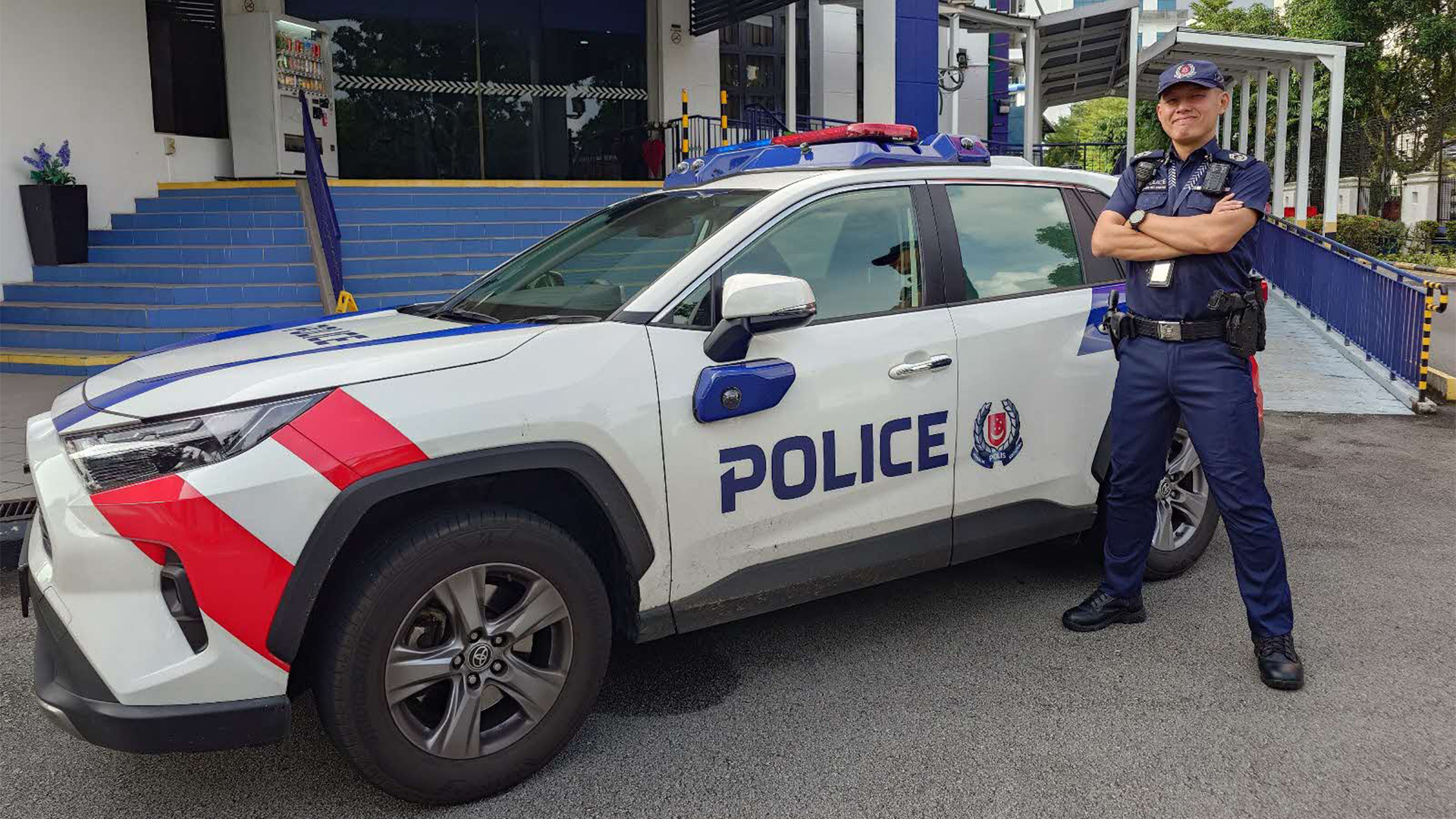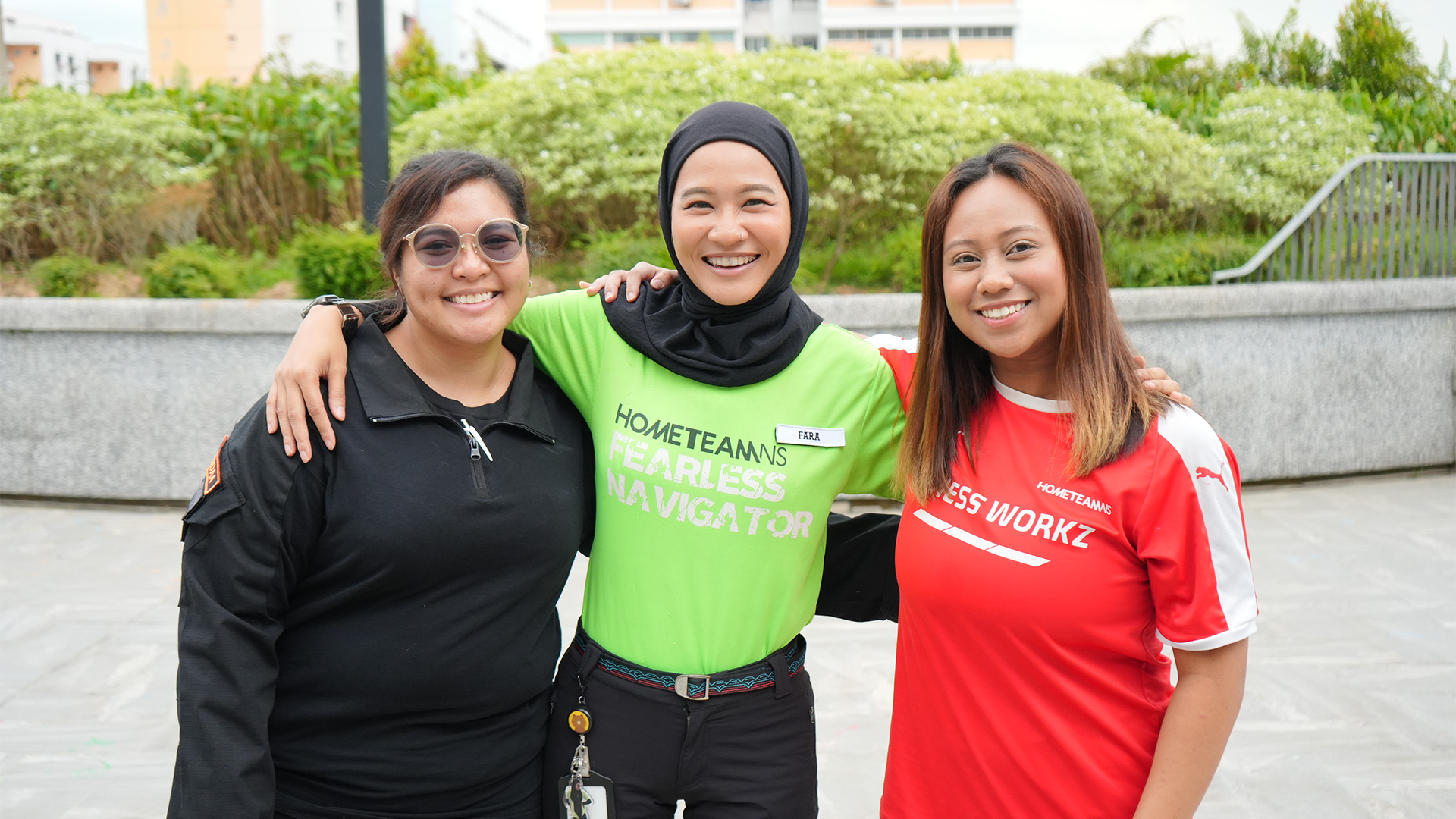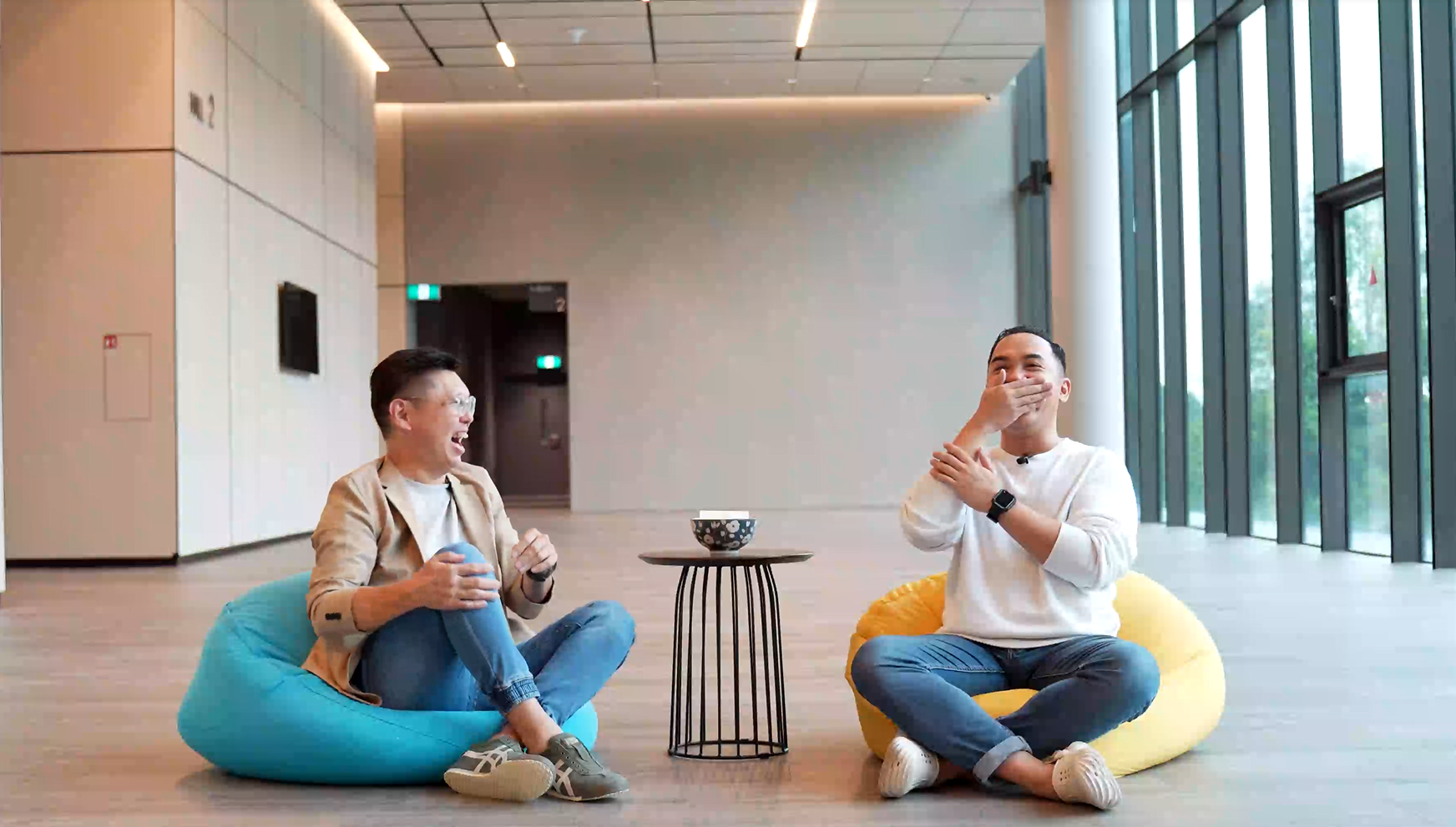
The food may be miles better and the culture less “rabak” (Malay for “wild”) as a whole, but regardless of generation, National Service (NS) remains an essential experience that bestows those who serve with skills for life.
Asked about his first day of NS in 1986, and DAC (NS) Jonathan Wan describes scenes reminiscent of a dramatic adventure film.
He recalls first reporting to the austere barracks-like Central Manpower Base (CMPB) in Dempsey, then bidding goodbye to his tearful grandmother and parents before riding on an RPL (ramp-powered lighter) — an unsheltered landing craft used to transport vehicles — to Pulau Tekong, surrounded fellow enlistees. “I wouldn’t say it was exciting, but it was memorable,” says Jonathan, 55.
Fast forward to 2007, and SGT1 (NS) Mohammed Fauzi Bin Abdul Aziz, 34, describes a rather different experience when he reported to the Basic Rescue Training Centre (BRTC) at Jalan Bahar. Having heard stories from his father and his older siblings about NS, Fauzi had felt some trepidation, but he was surprised by the tidy cluster of buildings that greeted him. “The facilities were very nice,” he says. “Honestly, when I went in, I was like, ‘Hey, this is like a holiday camp’.”
Jonathan served as a Staff Officer with the Ministry of Home Affairs, while Fauzi served as an Info-comms Operator in the Singapore Civil Defence Force (SCDF) technology department. But despite their starkly different, decades-apart introductions to NS, both men — in a conversation about their experiences — agree that what remains a constant is how NS serves as a rite of passage.
“I think a lot of the formative skill sets that I learnt while I was at NS gave me the confidence to take me on my next journey in life,” says Fauzi, who, like Jonathan, currently volunteers with HomeTeamNS.
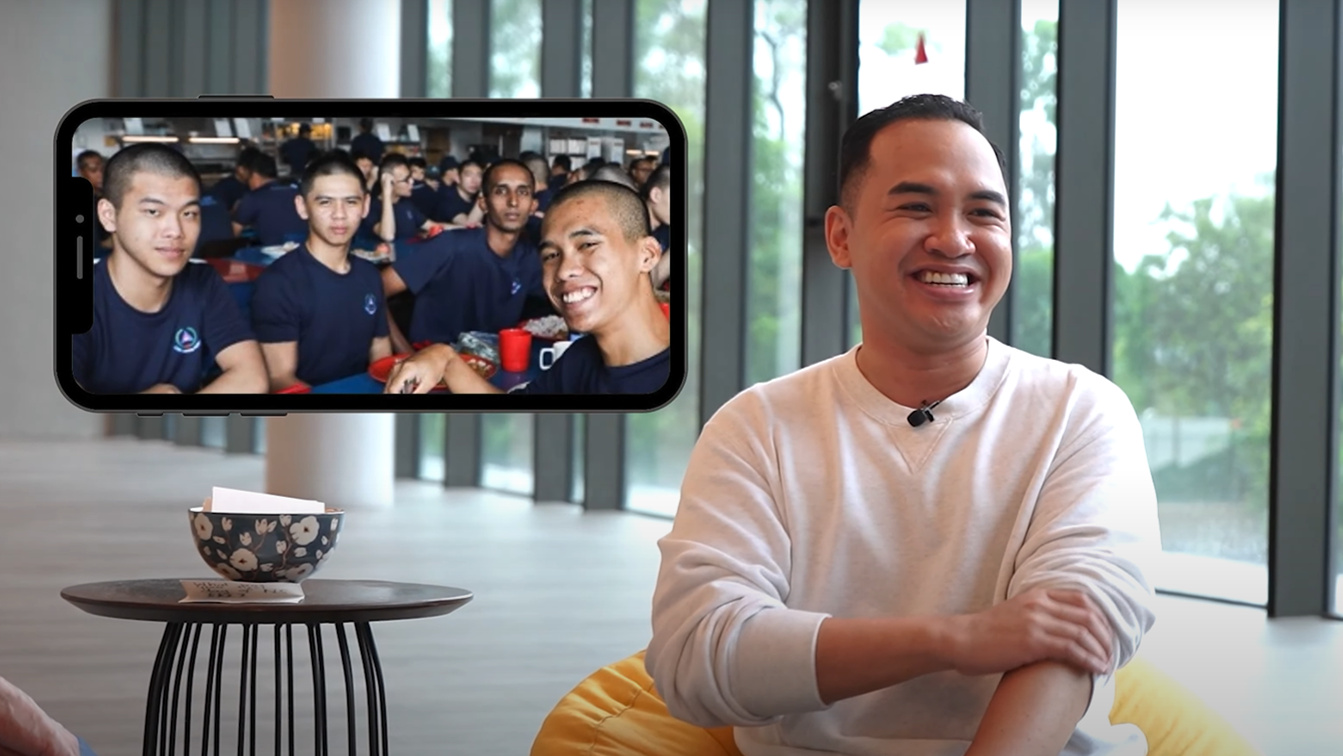
In the words of Fauzi, NS was more rabak (Malay for “wild”) in the past. “Over the years, training programmes, facilities and even the food have improved,” he says. “As Jonathan mentioned, how the different generations respond to training is very different, so I personally think it’s important that NS is always ready to evolve.”
Technological shifts have also transformed NS experiences, as Jonathan recounts how he had to use physical textbooks, while today’s servicemen get to use digital ones. “We had to go to the store to take our textbooks and bring them back to our bunk,” he shares, adding that the many textbooks on police law were especially heavy.
More importantly, the emphasis on mental health and the well-being of NSmen has grown, fostering a more understanding and supportive environment. Jonathan notes that there are now more resources to address psychological well-being and to understand servicemen’s concerns. “In the past, it was ‘one command, one action’, ‘don’t tell me you can’t’,” he says.
This shift in mindset is a welcome one, adds Fauzi. “I feel that the increased consideration of NSFs’ well-being now is important, so that no matter an individual’s situation, they will be able to serve NS in the most suitable vocation and still contribute to the nation,” he elaborates.
Despite these changes, the quintessential challenges of NS, such as its physical demands, remain — as Fauzi quips: “Yes, I definitely lost weight. Did I keep it off? No.”
In secondary school, he had been much fitter, but things took a nosedive in junior college when he became focused on studying for his exams. “I honestly regret this,” he laments. “If I could change my NS experience a little, it would be to prepare a bit more physically. I think things would have been easier.”
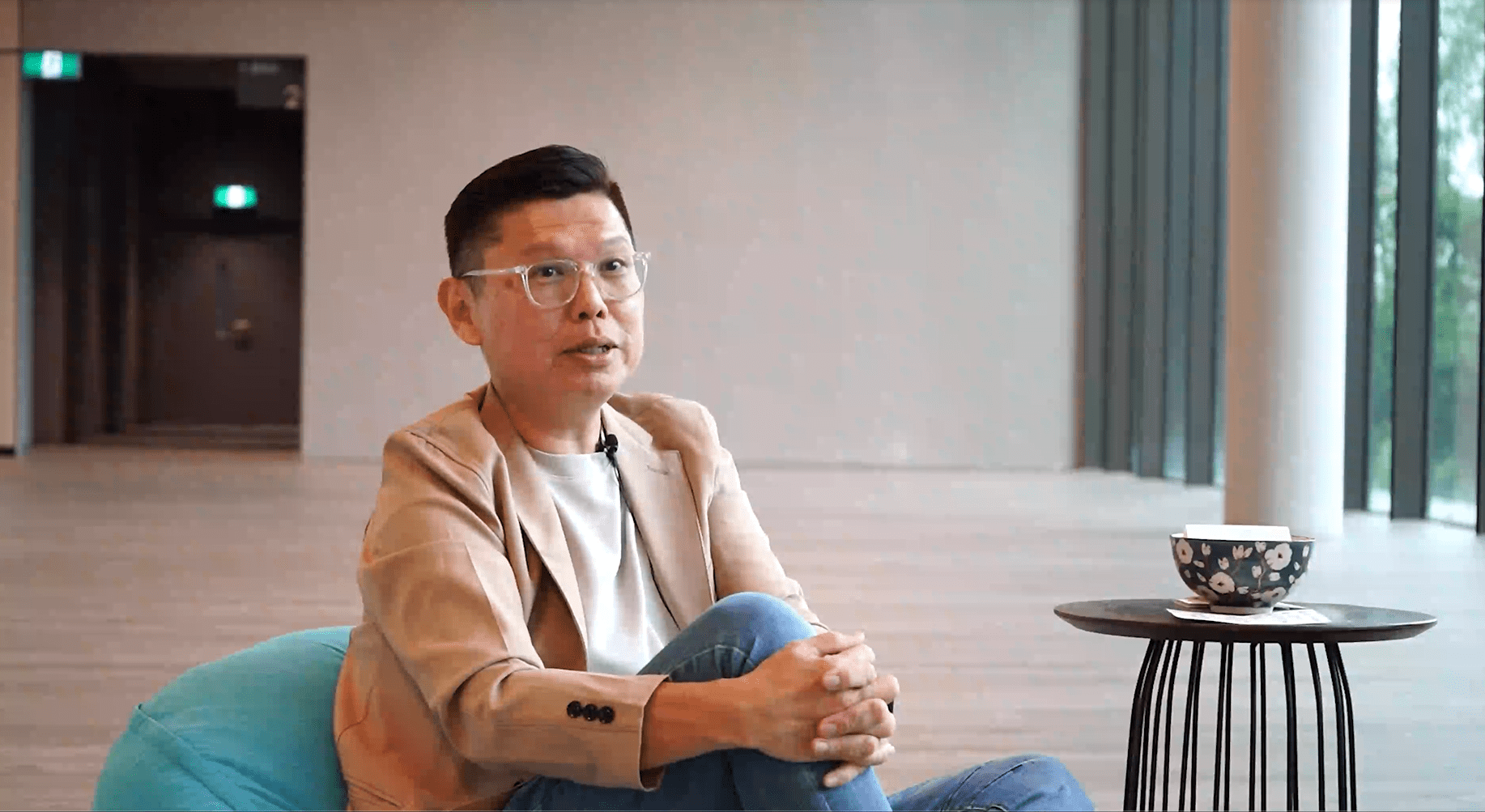
Jonathan agrees on the need to be prepared, although having been more active when he was in junior college, he was relatively better able to meet the physical demands of NS. “But of course, we [still] didn’t know what was going to happen in the exercises,” he says.
Even though they served in different vocations, both bonded over how they found confidence through their experiences in NS. Fauzi shares how he not only learnt useful skills like basic first aid and firefighting knowledge from being in the SCDF, but also soft skills like how to work more independently and how to lead a team.
Transitioning from his initial deployment to info-comms operations, he discovered a natural aptitude for communication, and ended up becoming the best trainee in his cohort. “If I didn’t go through NS, I don’t think I’d be doing what I’m doing now,” says Fauzi, who is now a content creator. “NS made me a more self-directed person, able to work towards a goal.”
Likewise, Jonathan shared how as an SPF officer, he interacted a lot with people on the ground. The experience helped him grow and become better at communicating with people from all walks of life. “It gave me confidence,” adds Jonathan, who is now an executive coach and senior consultant.
Their stories converge when they share the profound personal growth and professional development fostered by NS. “The skill sets we picked up will somehow always be useful and relevant to us beyond our time in NS. No matter the vocation, NSFs will have had to learn how to become young adults who are confident leaders,” says Fauzi.
Joking that perhaps they have the “same genes” despite the generation gap, Jonathan concurred that NS had a very positive impact on him. It offered him a broad spectrum of experiences, from gaining insight into everyday realities to taking on diverse roles such as drafting policy papers and commanding his own unit. “There were a lot of learning points,” he adds.
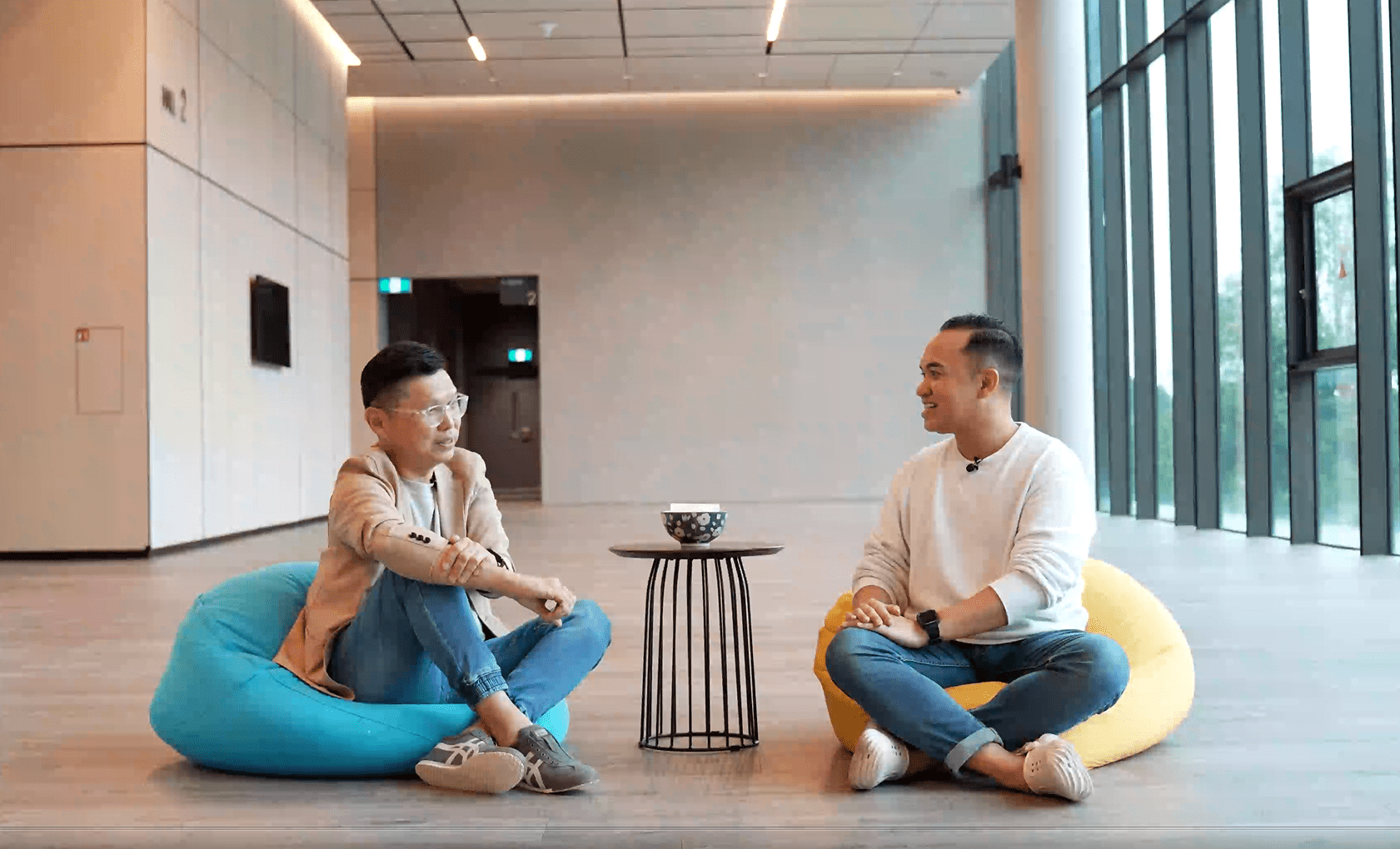
Long after completing their NS, both Jonathan and Fauzi remain actively involved with the Home Team, in particular serving as a volunteer with HomeTeamNS: the former as co-chairman of HomeTeamNS’s Guardians Network and the latter as a member of the HomeTeamNS’s Branding and Publicity Committee. Their ongoing commitment reflects a deep-seated belief in giving back to the community and supporting the next generation of NSmen.
As both put it, NS is “no choice” — but it can be a meaningful experience if one goes in with the right mindset. Fauzi shares that many of the younger Singaporeans he meets through work are understandably apprehensive about NS before enlisting, but an open mind is key. “Go with the intention of learning and even growing up and becoming a better individual. Then you will find that two years will fly by very quickly,” he advises.
Agreeing, Jonathan notes that his own NS experience was helped by the people who worked with him and mentored him — something he carried on when he became NS Commander of Public Transport Security Command (TransCom) and a mentor. “NS is made meaningful by the people around that make it meaningful, too,” he says. “At TransCom, we mentored [the NSmen] and made sure that their life is interesting and meaningful, and they’re not just ‘passing by’.”
Though rooted in different times and experiences, the meaning both drew from their experiences in NS is what keeps them connected to the Home Team. Says Fauzi: “At the end of the day, you are in control of how to make your NS life more fulfilling. If you want to give back, just do it — there are avenues for you to volunteer with.”
Check out how Jonathan and Fauzi bond over their NS stories:
Like our stories? Subscribe to our Frontline Digital newsletters now! Simply download the HomeTeamNS Mobile App and update your communication preference to ‘Receive Digital Frontline Magazine’, through the App Settings.


